26th September 2010 - New review
THE EFFECT OF STEM CELL SURGERY ON PARKINSON'S
DISEASE
Stem cell surgery, in which stem
cells are placed inside the brain in order to replace lost cells, is claimed to
be necessary for Parkinson's Disease because it is assumed that there is massive
loss of the dopaminergic neurons (the cells involved in Parkinson's Disease).
However, the theoretical basis of stem cell surgery in Parkinson's Disease is
based on a fallacy, because no studies have ever shown that there is a massive
loss of the dopaminergic neurons in Parkinson's Disease. Parkinson's Disease
results from the reduced activity of the existing cells. It is inevitable that
any new cells will eventually function at the same insufficient rate as the
existing cells, because their biochemical environment would be identical.
When stem cell surgery underwent
formal clinical trials there was found to be little or no effect
[1]
[2]
[3].
In a later study, a patient who underwent adult neural stem cell transplantation
appeared to significantly reduce their
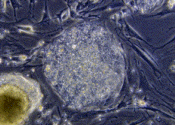 symptoms,
but after five years they had symptoms that were worse than when they started,
and were deteriorating rapidly
[4]. In a subsequent study, involving the use
of bone marrow derived mesenchymal stem cells, there was also little or no
effect
[5]. Transplanted cells eventually cease to
function normally anyway and still develop changes that are characteristic of
Parkinson's Disease
[6]
[7],
confirming that Parkinson's Disease is a biochemical state that can affect any
cells - those that were already there and those that are placed there.
In order to refer to this
article on its own
click here.
symptoms,
but after five years they had symptoms that were worse than when they started,
and were deteriorating rapidly
[4]. In a subsequent study, involving the use
of bone marrow derived mesenchymal stem cells, there was also little or no
effect
[5]. Transplanted cells eventually cease to
function normally anyway and still develop changes that are characteristic of
Parkinson's Disease
[6]
[7],
confirming that Parkinson's Disease is a biochemical state that can affect any
cells - those that were already there and those that are placed there.
In order to refer to this
article on its own
click here.
23rd
September 2010 - New book
YOU NEVER MISS THE DOPAMINE.....(UNTIL THE
BRAIN RUNS DRY)
Bill Schmalfeldt
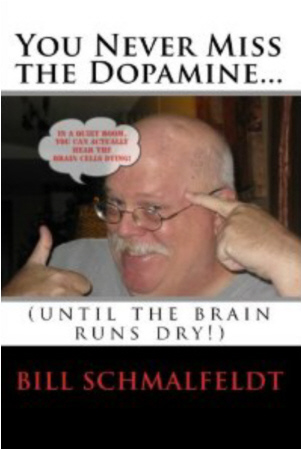 Publisher's
description : From the author of "No Doorway Wide Enough," "Undercover Trucker,"
and "Hunky Dunk," a real-life look at how one man deals with his Parkinson's
disease decline by laughing at it. Told in a series of essays from his blog,
Bill Schmalfeldt talks more about the non-motor symptoms of PD - the speech
difficulties, the bizarre dreams, the memory problems and the hallucinations -
in a way that makes the reader realize that while there's no cure for PD, it
can't damage the human spirit (unless you let it) ! Diagnosed with Parkinson's
disease in 2000 at the tender age of 45, Bill Schmalfeldt has devoted his life
to raising awareness of the disease in America.
Click here for more details.
For
more books concerning Parkinson's Disease go to
Parkinson's Disease Books.
For Bill Schmalfeldt's blog go to
My Parkinson's Diary.
Publisher's
description : From the author of "No Doorway Wide Enough," "Undercover Trucker,"
and "Hunky Dunk," a real-life look at how one man deals with his Parkinson's
disease decline by laughing at it. Told in a series of essays from his blog,
Bill Schmalfeldt talks more about the non-motor symptoms of PD - the speech
difficulties, the bizarre dreams, the memory problems and the hallucinations -
in a way that makes the reader realize that while there's no cure for PD, it
can't damage the human spirit (unless you let it) ! Diagnosed with Parkinson's
disease in 2000 at the tender age of 45, Bill Schmalfeldt has devoted his life
to raising awareness of the disease in America.
Click here for more details.
For
more books concerning Parkinson's Disease go to
Parkinson's Disease Books.
For Bill Schmalfeldt's blog go to
My Parkinson's Diary.
22nd September 2010 - New research
ADVERSE EFFECTS OF DEEP BRAIN STIMULATION
World Neurosurgery [2010] 73 (4)
: 338-344 (F.Vergani, A.Landi, D.Pirillo, R.Cilia, A.Antonini, E.P.Sganzerla)
Complete abstract
Deep Brain
Stimulation (DBS) is the most commonly used surgical means of treating
Parkinson's Disease. It involves the use of electrodes that are implanted into
the brain and connected to a small electrical device called a pulse generator
that can be externally programmed. For more information go to
Deep Brain Stimulation.
Adverse events, due to surgical and hardware-related complications, must be
clearly addressed to properly balance the cost-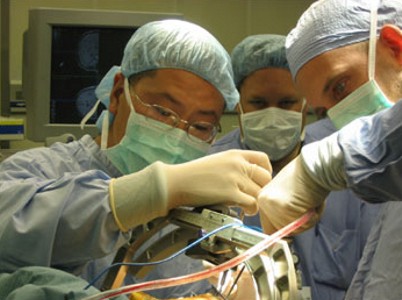 effectiveness
of the therapy. In a large study of DBS surgical operations, the following
percentages of patients experienced adverse events : surgical complications
(5.6%), including hemorrhages (1.4%), and inabilities to complete the surgical
procedure (2.1%). Medical delayed adverse events affected 1.4% of patients, with
a patient having a fatal aspiration pneumonia. Infections were seen in 5.6% of
patients. Removal of the hardware was necessary in 3.6%. Hardware-adverse events
were observed in 7% of patients, generally requiring minor surgery. Direct
surgical mortality was 0%. Overall mortality was 0.7%. Permanent surgical
morbidity was 0.7%.
In order to refer to this
article on its own
click here.
effectiveness
of the therapy. In a large study of DBS surgical operations, the following
percentages of patients experienced adverse events : surgical complications
(5.6%), including hemorrhages (1.4%), and inabilities to complete the surgical
procedure (2.1%). Medical delayed adverse events affected 1.4% of patients, with
a patient having a fatal aspiration pneumonia. Infections were seen in 5.6% of
patients. Removal of the hardware was necessary in 3.6%. Hardware-adverse events
were observed in 7% of patients, generally requiring minor surgery. Direct
surgical mortality was 0%. Overall mortality was 0.7%. Permanent surgical
morbidity was 0.7%.
In order to refer to this
article on its own
click here.
16th September 2010 - New research
GENETIC MUTATIONS IN EARLY PARKINSON'S DISEASE
Archives of Neurology [2010] 67
(9) : 1116-1122 (Alcalay RN, Caccappolo E, Mejia-Santana H, Tang MX, Rosado L,
Ross BM, Verbitsky M, Kisselev S, Louis ED, Comella C, Colcher A, Jennings D,
Nance MA, Bressman SB, Scott WK, Tanner C, Mickel S, Andrews H, Waters C, Fahn
S, Cote L, Frucht S, Ford B, Rezak M, Novak K, Friedman JH, Pfeiffer R, Marsh L,
Hiner B, Siderowf A, Ottman R, Marder K, Clark LN.)
Complete abstract
In people with early onset Parkinson's Disease, which was defined as developing
Parkinson's Disease at age 50 or earlier, about one in six had genetic mutations
known to make Parkinson's Disease more likely. Mutations occurred in 40% of
those people who developed Parkinson's Disease by 30 years of age. For those
people who developed
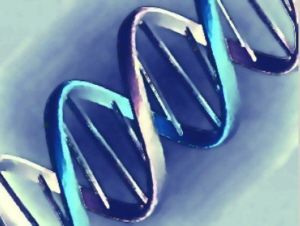 Parkinson's
Disease between 31 and 50 years old the likelihood was about one in seven. This
likelihood was far greater in people of Jewish ancestry, as nearly a
third of those had genetic mutations known to make Parkinson's Disease more
likely. The genetic mutation most responsible for Parkinson's Disease, the
Parkin gene,
was most common of all in people with Hispanic ancestry. Although genetics are
not a factor at all for most people with Parkinson's Disease, in those
people with specific genetic mutations, the likelihood pf developing Parkinson's
Disease becomes far greater but not inevitable.
In order to refer to this
article on its own
click here.
Parkinson's
Disease between 31 and 50 years old the likelihood was about one in seven. This
likelihood was far greater in people of Jewish ancestry, as nearly a
third of those had genetic mutations known to make Parkinson's Disease more
likely. The genetic mutation most responsible for Parkinson's Disease, the
Parkin gene,
was most common of all in people with Hispanic ancestry. Although genetics are
not a factor at all for most people with Parkinson's Disease, in those
people with specific genetic mutations, the likelihood pf developing Parkinson's
Disease becomes far greater but not inevitable.
In order to refer to this
article on its own
click here.
12th September 2010 - New research
TRANSCRANIAL MAGNETIC STIMULATION FOR PARKINSON'S DISEASE
Movement Disorders [2010] Aug
24. [Epub ahead of print] (Pal E, Nagy F, Aschermann Z, Balazs E, Kovacs N.)
Complete abstract
New clinical trial results indicate that Transcranial magnetic stimulation (TMS)
seems to have an anti-depressive effect on people with Parkinson's Disease. TMS
is a method of exciting nerve cells. The excitation is achieved by weak electric
currents caused by rapidly changing magnetic fields. This way, brain activity
can be affected without the
need
for surgery or external electrodes. The field is generated by passing current
pulses through a conducting coil, held close to the scalp so that the field is
focussed in the cortex, passing through the skull. For more information go to
Transcranial magnetic stimulation.
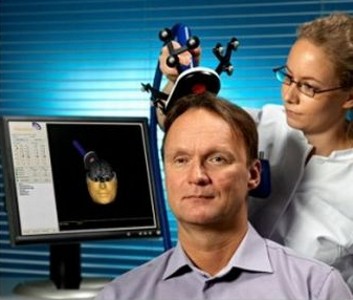 For full
details of the method go to the
Oxford Handbook of Transcranial Stimulation.
In the clinical trial, depression
was improved 30 days after treatment ended.
Parkinson's Disease symptoms aimproved during the clinical trial but not by
much. In a previous study, TMS reduced some Parkinson's Disease symptoms. The
effect appears to have been achieved by increasing dopamine levels. For more
information go to the
Complete abstract.
In order to refer to this
article on its own
click here.
For full
details of the method go to the
Oxford Handbook of Transcranial Stimulation.
In the clinical trial, depression
was improved 30 days after treatment ended.
Parkinson's Disease symptoms aimproved during the clinical trial but not by
much. In a previous study, TMS reduced some Parkinson's Disease symptoms. The
effect appears to have been achieved by increasing dopamine levels. For more
information go to the
Complete abstract.
In order to refer to this
article on its own
click here.
9th September 2010 - New research
PHYSICAL ACTIVITY AND THE RISK OF PARKINSON'S DISEASE
Neurology [2010] 75 (4) :
341-348 (Xu Q, Park Y, Huang X, Hollenbeck A, Blair A, Schatzkin A, Chen H.)
Complete abstract
Higher levels of regular
moderate to vigorous activity when somebody is in their late thirties and in the
past ten years has been found to reduce the risk of Parkinson's Disease by 40%.
Moderate to vigorous activities at earlier ages (prior to their late thirties),
or light activity had no effect on the likelihood of developing Parkinson's
Disease.
The primary symptom of
Parkinson's Disease is excessive muscle contraction. Although the initial effect
of exercise
 is
to increase muscle contraction, the after effect of exercise is to reduce
reduce muscle contraction. This has the same type of effect on the muscles as
most Parkinson's Disease drugs. However, exercise does not raise dopamine levels
as most Parkinson's Disease drugs do. So exercise does not directly affect
Parkinson's Disease, but can reduce the proneness to it. Consequently, a lack of
physical activity could also increase the proneness to developing Parkinson's
Disease. In order to refer to this article on its own
click here.
is
to increase muscle contraction, the after effect of exercise is to reduce
reduce muscle contraction. This has the same type of effect on the muscles as
most Parkinson's Disease drugs. However, exercise does not raise dopamine levels
as most Parkinson's Disease drugs do. So exercise does not directly affect
Parkinson's Disease, but can reduce the proneness to it. Consequently, a lack of
physical activity could also increase the proneness to developing Parkinson's
Disease. In order to refer to this article on its own
click here.
7th September 2010 - New research
THOUGHT DISORDERS IN PARKINSON'S DISEASE
Journal of Neural Transmission
[2010] Aug 29. [Epub ahead of print] (Debs R, Cochen De Cock V, N�gre-Pag�s L,
Aristin M, Senard A, Rascol O.)
Complete abstract
Thought disorders have been found to be present in
a quarter of people with Parkinson's Disease. Thought disorders can involve :
changing quickly from one idea to another, mixing thoughts together, sudden
cessation of thoughts. For more information go to
Thought disorders. One in five people
with Parkinson's Disease had vivid dreams. Only
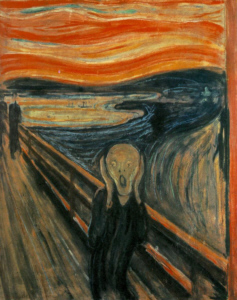 4%
of people with Parkinson's Disease had harmless hallucinations. In the study
carried out, none of the people assessed had delusions. Those people with
thought disorders were found to be more dependent than others. Thought disorders
were also associated with : longer duration of Parkinson's Disease, greater
Parkinson's Disease symptom scores, the presence of motor complications. Thought
disorders were also associated with tremor, dysautonomia (malfunction of the
autonomic nervous system), lower MMSE score (a test of cognitive impairment),
depression and sleep disorders.
Much of this can be
attributed to an excess of Parkinson's Disease drugs, because the low dopamine
of Parkinson's Disease does not lead to most of these symptoms. In order to refer to this
article on its own
click here.
4%
of people with Parkinson's Disease had harmless hallucinations. In the study
carried out, none of the people assessed had delusions. Those people with
thought disorders were found to be more dependent than others. Thought disorders
were also associated with : longer duration of Parkinson's Disease, greater
Parkinson's Disease symptom scores, the presence of motor complications. Thought
disorders were also associated with tremor, dysautonomia (malfunction of the
autonomic nervous system), lower MMSE score (a test of cognitive impairment),
depression and sleep disorders.
Much of this can be
attributed to an excess of Parkinson's Disease drugs, because the low dopamine
of Parkinson's Disease does not lead to most of these symptoms. In order to refer to this
article on its own
click here.
3rd September 2010 - New research
EARLY LIFE FACTORS AND PARKINSON'S DISEASE
Movement Disorders [2010] 25
(11) : 1560-1567 (Gardener H, Gao X, Chen H, Schwarzschild MA, Spiegelman D,
Ascherio A.)
Complete abstract
Few studies have investigated the relation between early life factors and risk
of Parkinson's Disease. Parkinson's Disease risk was examined in relation to :
season of birth, birth weight, parental age at birth, preterm birth, multiple
birth, ever having been breast-fed, and left or right handedness. No significant
relation with Parkinson's Disease was observed for : birth weight, paternal age, preterm birth,
multiple birth, and having been breastfed. A modest
 association
was suggested for season of birth, as there was a 30%
higher risk of developing Parkinson's Disease in those born in Spring rather
than Winter. Older maternal age at birth increased the risk of developing
Parkinson's Disease by 75% among those with mothers aged 30 years and older
versus those with mothers younger than 20 years old. Left handed women were
found to be 62% more likely to develop Parkinson's Disease than right handed
women. Men were not affected at all according to whether they were right or left
handed.
In order to refer to this
article on its own
click here.
association
was suggested for season of birth, as there was a 30%
higher risk of developing Parkinson's Disease in those born in Spring rather
than Winter. Older maternal age at birth increased the risk of developing
Parkinson's Disease by 75% among those with mothers aged 30 years and older
versus those with mothers younger than 20 years old. Left handed women were
found to be 62% more likely to develop Parkinson's Disease than right handed
women. Men were not affected at all according to whether they were right or left
handed.
In order to refer to this
article on its own
click here.
1st September 2010 - New research
THE GENETIC LIKELIHOOD OF PARKINSON'S DISEASE
Journal of Human Genetics [2010] 55 (4) : 241-243 (T.H.Hamza,
H.Payami)
Complete abstract
Researchers questioned whether
the evidence for the genetic likelihood of Parkinson's Disease could be
explained by the susceptibility genes that have already been identified. They
estimated heritability of risk and age at onset of Parkinson's Disease in a
large sample of families. After excluding families with known genetic mutations
and accounting for the main genes likely to cause Parkinson's Disease, they
found the likelihood of inheriting Parkinson's Disease to be 41%. However, this
study did not take account of families passing on their non-genetic factors,
such as physical environment, dietary habits, and medicine use.
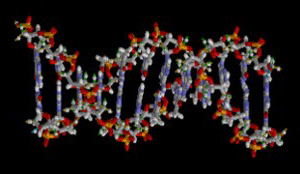 In order to
properly assess the genetic likelihood
of developing Parkinson's Disease they would need to assess twins separated at
birth. However, even when twins not separated at birth were assessed, it was
found that the genetic likelihood of developing Parkinson's Disease was only 10%
in twins. For more details go to the
Complete abstract. The
results suggest that Parkinson's Disease is not inherited except in the rarer
cases, where there is a specific genetic mutation.
In order to refer to this article on its own
click here.
In order to
properly assess the genetic likelihood
of developing Parkinson's Disease they would need to assess twins separated at
birth. However, even when twins not separated at birth were assessed, it was
found that the genetic likelihood of developing Parkinson's Disease was only 10%
in twins. For more details go to the
Complete abstract. The
results suggest that Parkinson's Disease is not inherited except in the rarer
cases, where there is a specific genetic mutation.
In order to refer to this article on its own
click here.
.gif)
.gif)
 symptoms,
but after five years they had symptoms that were worse than when they started,
and were deteriorating rapidly
symptoms,
but after five years they had symptoms that were worse than when they started,
and were deteriorating rapidly
 Publisher's
description : From the author of "No Doorway Wide Enough," "Undercover Trucker,"
and "Hunky Dunk," a real-life look at how one man deals with his Parkinson's
disease decline by laughing at it. Told in a series of essays from his blog,
Bill Schmalfeldt talks more about the non-motor symptoms of PD - the speech
difficulties, the bizarre dreams, the memory problems and the hallucinations -
in a way that makes the reader realize that while there's no cure for PD, it
can't damage the human spirit (unless you let it) ! Diagnosed with Parkinson's
disease in 2000 at the tender age of 45, Bill Schmalfeldt has devoted his life
to raising awareness of the disease in America.
Publisher's
description : From the author of "No Doorway Wide Enough," "Undercover Trucker,"
and "Hunky Dunk," a real-life look at how one man deals with his Parkinson's
disease decline by laughing at it. Told in a series of essays from his blog,
Bill Schmalfeldt talks more about the non-motor symptoms of PD - the speech
difficulties, the bizarre dreams, the memory problems and the hallucinations -
in a way that makes the reader realize that while there's no cure for PD, it
can't damage the human spirit (unless you let it) ! Diagnosed with Parkinson's
disease in 2000 at the tender age of 45, Bill Schmalfeldt has devoted his life
to raising awareness of the disease in America.
 effectiveness
of the therapy. In a large study of DBS surgical operations, the following
percentages of patients experienced adverse events : surgical complications
(5.6%), including hemorrhages (1.4%), and inabilities to complete the surgical
procedure (2.1%). Medical delayed adverse events affected 1.4% of patients, with
a patient having a fatal aspiration pneumonia. Infections were seen in 5.6% of
patients. Removal of the hardware was necessary in 3.6%. Hardware-adverse events
were observed in 7% of patients, generally requiring minor surgery. Direct
surgical mortality was 0%. Overall mortality was 0.7%. Permanent surgical
morbidity was 0.7%.
In order to refer to this
article on its own
effectiveness
of the therapy. In a large study of DBS surgical operations, the following
percentages of patients experienced adverse events : surgical complications
(5.6%), including hemorrhages (1.4%), and inabilities to complete the surgical
procedure (2.1%). Medical delayed adverse events affected 1.4% of patients, with
a patient having a fatal aspiration pneumonia. Infections were seen in 5.6% of
patients. Removal of the hardware was necessary in 3.6%. Hardware-adverse events
were observed in 7% of patients, generally requiring minor surgery. Direct
surgical mortality was 0%. Overall mortality was 0.7%. Permanent surgical
morbidity was 0.7%.
In order to refer to this
article on its own
 Parkinson's
Disease between 31 and 50 years old the likelihood was about one in seven. This
likelihood was far greater in people of Jewish ancestry, as nearly a
third of those had genetic mutations known to make Parkinson's Disease more
likely. The genetic mutation most responsible for Parkinson's Disease, the
Parkinson's
Disease between 31 and 50 years old the likelihood was about one in seven. This
likelihood was far greater in people of Jewish ancestry, as nearly a
third of those had genetic mutations known to make Parkinson's Disease more
likely. The genetic mutation most responsible for Parkinson's Disease, the
 For full
details of the method go to the
For full
details of the method go to the
 is
to increase muscle contraction, the after effect of exercise is to reduce
reduce muscle contraction. This has the same type of effect on the muscles as
most Parkinson's Disease drugs. However, exercise does not raise dopamine levels
as most Parkinson's Disease drugs do. So exercise does not directly affect
Parkinson's Disease, but can reduce the proneness to it. Consequently, a lack of
physical activity could also increase the proneness to developing Parkinson's
Disease. In order to refer to this article on its own
is
to increase muscle contraction, the after effect of exercise is to reduce
reduce muscle contraction. This has the same type of effect on the muscles as
most Parkinson's Disease drugs. However, exercise does not raise dopamine levels
as most Parkinson's Disease drugs do. So exercise does not directly affect
Parkinson's Disease, but can reduce the proneness to it. Consequently, a lack of
physical activity could also increase the proneness to developing Parkinson's
Disease. In order to refer to this article on its own
 4%
of people with Parkinson's Disease had harmless hallucinations. In the study
carried out, none of the people assessed had delusions. Those people with
thought disorders were found to be more dependent than others. Thought disorders
were also associated with : longer duration of Parkinson's Disease, greater
Parkinson's Disease symptom scores, the presence of motor complications. Thought
disorders were also associated with tremor, dysautonomia (malfunction of the
autonomic nervous system), lower MMSE score (a test of cognitive impairment),
depression and sleep disorders.
Much of this can be
attributed to an excess of Parkinson's Disease drugs, because the low dopamine
of Parkinson's Disease does not lead to most of these symptoms. In order to refer to this
article on its own
4%
of people with Parkinson's Disease had harmless hallucinations. In the study
carried out, none of the people assessed had delusions. Those people with
thought disorders were found to be more dependent than others. Thought disorders
were also associated with : longer duration of Parkinson's Disease, greater
Parkinson's Disease symptom scores, the presence of motor complications. Thought
disorders were also associated with tremor, dysautonomia (malfunction of the
autonomic nervous system), lower MMSE score (a test of cognitive impairment),
depression and sleep disorders.
Much of this can be
attributed to an excess of Parkinson's Disease drugs, because the low dopamine
of Parkinson's Disease does not lead to most of these symptoms. In order to refer to this
article on its own
 association
was suggested for season of birth, as there was a 30%
higher risk of developing Parkinson's Disease in those born in Spring rather
than Winter. Older maternal age at birth increased the risk of developing
Parkinson's Disease by 75% among those with mothers aged 30 years and older
versus those with mothers younger than 20 years old. Left handed women were
found to be 62% more likely to develop Parkinson's Disease than right handed
women. Men were not affected at all according to whether they were right or left
handed.
In order to refer to this
article on its own
association
was suggested for season of birth, as there was a 30%
higher risk of developing Parkinson's Disease in those born in Spring rather
than Winter. Older maternal age at birth increased the risk of developing
Parkinson's Disease by 75% among those with mothers aged 30 years and older
versus those with mothers younger than 20 years old. Left handed women were
found to be 62% more likely to develop Parkinson's Disease than right handed
women. Men were not affected at all according to whether they were right or left
handed.
In order to refer to this
article on its own
 In order to
properly assess the genetic likelihood
of developing Parkinson's Disease they would need to assess twins separated at
birth. However, even when twins not separated at birth were assessed, it was
found that the genetic likelihood of developing Parkinson's Disease was only 10%
in twins. For more details go to the
In order to
properly assess the genetic likelihood
of developing Parkinson's Disease they would need to assess twins separated at
birth. However, even when twins not separated at birth were assessed, it was
found that the genetic likelihood of developing Parkinson's Disease was only 10%
in twins. For more details go to the